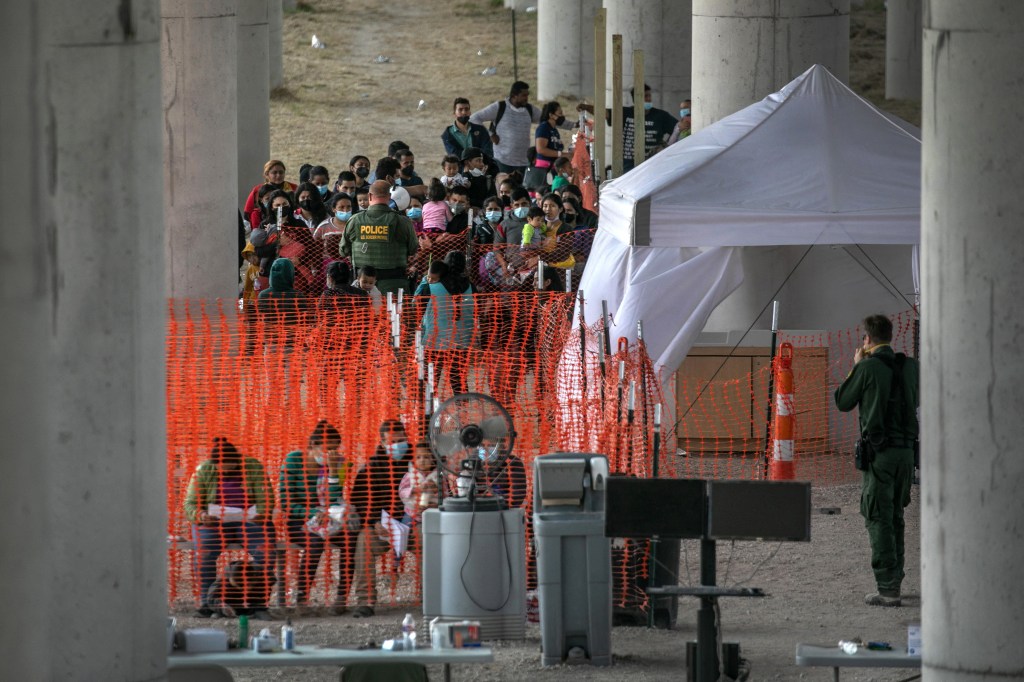This week, CPJ called on the U.S. Department of Homeland Security to allow journalists to access detention facilities and Border Patrol activities along the U.S.-Mexico border. D.H.S. and Border Patrol officials have recently barred the press from entering detention facilities, citing privacy and COVID-19 concerns.
In Morocco, press freedom advocates and journalists’ families told CPJ that authorities are using trumped up sexual assault and “morals” charges to retaliate against members of the press for their reporting. Journalists say this has instilled a sense of fear in a country that already has a reputation for surveilling and imprisoning journalists reporting critically on the king or on protests.
In some much-welcomed good news, at least three journalists were released from prison this week: AP journalist Thein Zaw in Myanmar; Kilwe Adan Farah in Puntland, Somalia; and Maati Monjib in Morocco.
Global press freedom updates
- Pakistani journalist Ajay Lalwani dies after suffering three gunshot wounds
- The Markup’s Nabiha Syed on how the U.S. Supreme Court could protect data journalism
- Turkish law consolidates news censorship under ‘right to be forgotten’
- Kyrgyz journalists on the online ‘fake farms’ that threaten to kill them
- In Azerbaijan, imprisoned journalist Afgan Sadygov has been on a hunger strike for over four months, and his wife says he is in critical condition
- Kazakhstan adopts accreditation requirements that journalists fear will promote censorship
- In Uzbekistan, journalist receives death threats while reporting on a local travel firm in Samarkand
- CPJ and nine other organizations condemn the lack of response from the Serbian government on the smear campaign against investigative outlet KRIK
- Russian journalist Mariya Nuykina repeatedly jailed over protest coverage
- Iranian authorities jail journalist Amir Dehbashi in defamation case
- RFE/RL contributor arrested, accused of espionage in Crimea
- French journalist Sylvain Mercadier barred from entering Turkey, deported
- CPJ joined dozens of organizations in urging the European Parliament to reject a draft regulation on terrorist content online
- Mexican journalist Jorge Molontzín missing in Sonora since March 10
- Argentine newspaper office ransacked, journalist threatened following reporting on sexual assault
- Brazilian journalist’s home, newspaper office targeted in arson attack
- Peruvian presidential candidate files trademark complaint against journalist and Penguin Random House
- Cuban police raid newspaper Páginas Villareñas, confiscate equipment and harass staff
- Guinea journalist Amadou Diouldé Diallo detained in hospital over alleged insults to president
- Nigerian journalist threatened over report on alleged fraud
- CPJ calls on Bangladesh prime minister to investigate journalist death, abuse
- CPJ stands with Agnès Callamard, the outgoing U.N. special rapporteur for extrajudicial killings. Earlier in the week, The Guardian revealed that a top Saudi official had issued death threat against her in a January 2020 meeting in Geneva
Spotlight
This week, as part of the annual U.N. Commission on the Status of Women, CPJ hosted “Ballots and bots: Elections, disinformation, and trolling of women journalists,” a panel on online harassment during elections and what leaders can do to combat this problem, moderated by CPJ Advocacy Director Courtney Radsch. Indian journalist Neha Dixit, Brazilian reporter Patrícia Campos Mello, and Facebook’s women’s safety policy manager, Cindy Southworth, shared moving stories and insights.
Upcoming events
Photographers do not have the luxury of staying out of the fray, making them vulnerable to physical attacks. Next Monday, CPJ Advocacy Director Courtney Radsch will join a timely conversation exploring threats to photographers and journalists globally. The event is hosted by the Journalism and Media Studies Centre at The University of Hong Kong. Register here. Learn more about CPJ’s work with photojournalists.
At a time when public access to news is critically important, the combination of disinformation and online harassment has made the digital landscape increasingly hostile to the press, particularly for women journalists. On April 8, Radsch will speak to this challenge in a discussion with the Pacific Council on International Policy. Register here.
A closer look | CPJ’s most-read features in March
- Women ‘have finally started talking’: Three female journalists on covering sexual violence in Russia
- Brazilian journalist Patrícia Campos Mello sued President Bolsonaro’s son for moral damages – and won
- ‘Spaghetti against the wall’: how flimsy evidence sent two Iraqi Kurdish journalists to jail for six years
- Election disinformation happens all over the world. These journalists are combating it
- New York Times journalist Nicole Perlroth on the secret trade in tools used to hack the press
- Three takeaways from the U.S. intelligence report blaming Saudi Arabia’s Mohammed bin Salman for Khashoggi’s murder
What we are reading
- Asian American Journalists on the Frontline of Hate and Negligence — The Coalition For Women In Journalism, Ms. Magazine
- What Could the ‘Khashoggi Ban’ Mean for Central American Journalism? — Roman Gressier, El Faro
- Independent Russian journalists are thriving on YouTube — for now — Maria Danilova, Rest of World
- ‘Egypt is Holding My Cousin Hostage’ — Sherif Mansour, CPJ Middle East and North Africa program coordinator, Newsweek
- Online harassment is ugly and routine for women in journalism — Alex Gangitano and Julie Manchester, The Hill
- For Political Cartoonists, the Irony Was That Facebook Didn’t Recognize Irony — Mike Isaac, The New York Times
- Chinese hackers used Facebook to target Uighurs abroad, company says — Elizabeth Culliford and Raphael Satter, Reuters
